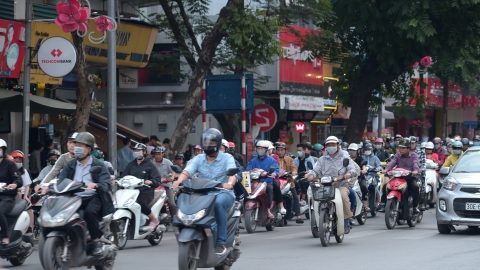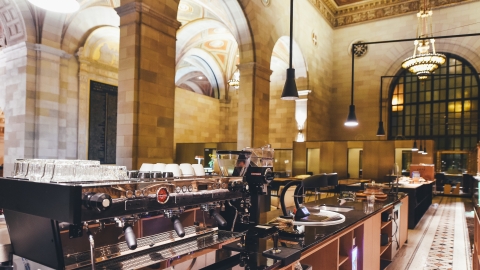Minimizing travel and avoiding crowded places is something everyone understands during the current tense Covid-19 outbreak. However, some trips cannot be postponed for many reasons, such as work, resolving issues, or simply going to a safer place. And when travel is unavoidable during this sensitive time, remember these eight ways to protect yourself and minimize the risk of Covid-19 infection.
1. Choose a safe mode of transportation.
If you have to travel during a pandemic, first choose the safest mode of transportation possible. For short distances, a personal car is the top priority due to its convenience and privacy. Traveling by car will help you avoid contact with many people, thereby minimizing potential risks from others.
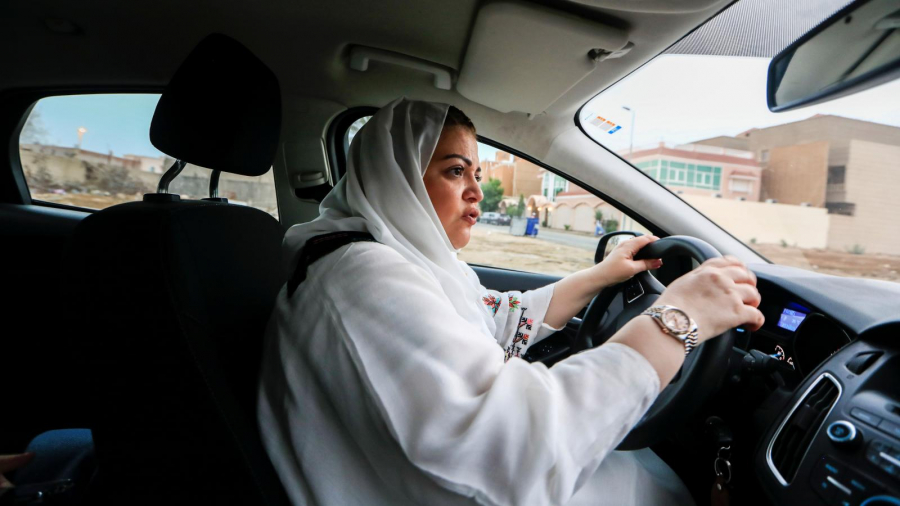
However, when traveling to another country or region, air travel is the safest option. Although it involves contact with many people, the fastest travel time of all means of transport helps minimize potential risks.
Authorities and officials always set strict regulations and standards to control disease outbreaks on airplanes, such as pre-boarding health screenings and maintaining temperatures above 27°C.oThroughout the flight, passengers' temperatures are checked. Furthermore, isolation areas are always in place to ensure safety in case any suspected cases of infection are detected.
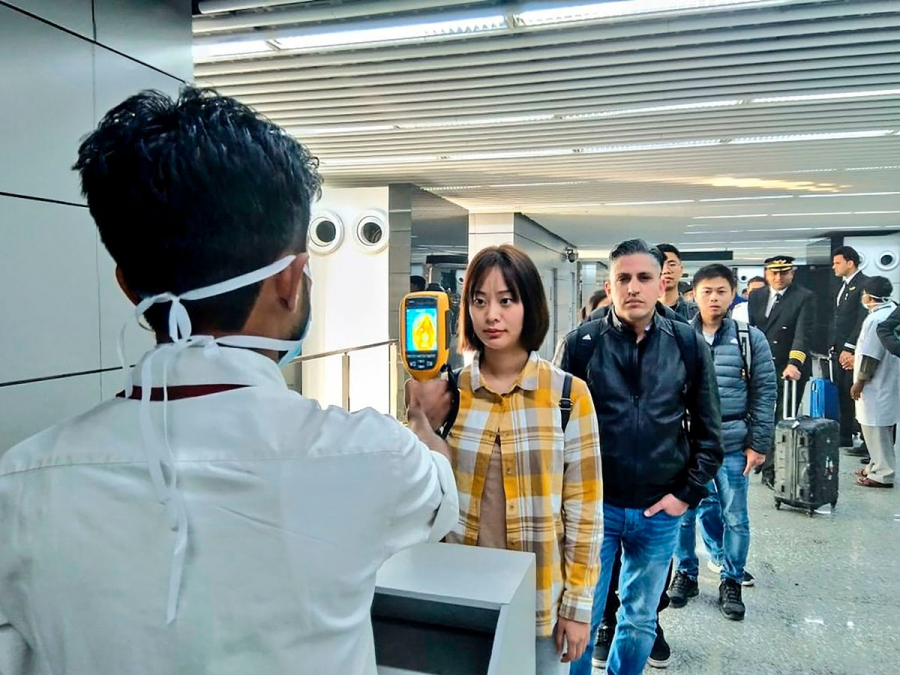

The International Civil Aviation Organization (ICAO) also stated that the risk of virus transmission on aircraft is very small. ICAO explained that air in the aircraft cabin circulates horizontally, minimizing vertical air dispersion. Furthermore, modern aircraft are equipped with True HEPA filters that can filter over 99.95% of bacteria, viruses, dust, and particles (0.3 micrometers in size) in the air without the need for chemical additives, paints, or other surface treatments.
2. Maintain distance
Wearing a mask or even gloves when going to crowded places is often considered an effective measure. However, masks are only truly effective if you are aware that you are not healthy enough, could become a source of infection, and use them to prevent the spread of infection in the community. And if you use a mask, replace it immediately when it is no longer dry, because dampness is an ideal environment for bacteria and viruses to thrive.
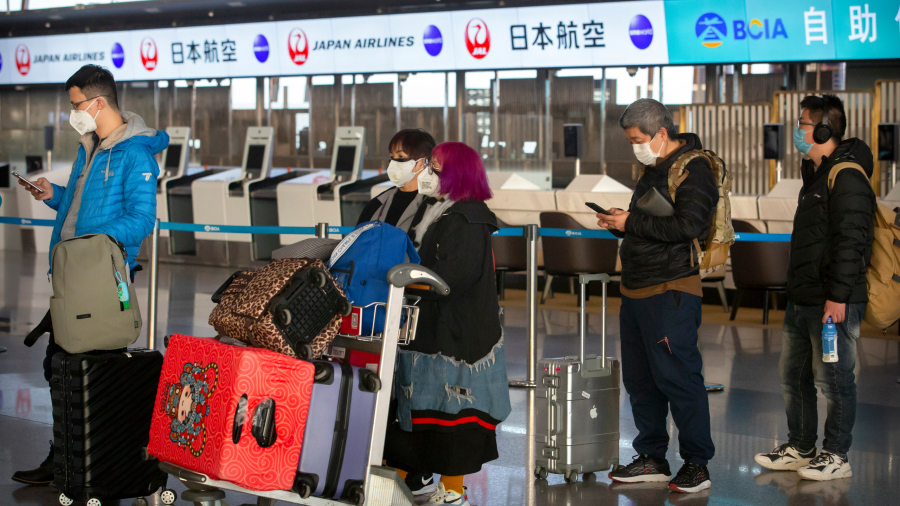
In fact, maintaining a safe distance is far more important than creating a protective barrier. The coronavirus is quite large; it cannot survive or float in the air, and the only way it is spread into the environment is through droplets. Therefore, maintaining a safe distance of 2 meters when standing or avoiding close contact in confined spaces will minimize the risk of infection.
3. Wash your hands frequently.
You've probably heard this advice a lot lately. The Ministry of Health has listed washing your hands with soap and avoiding touching your eyes, nose, and mouth as the most important measures to prevent the coronavirus.
In a confined environment with contact with many people and public objects, handwashing is the most effective way to protect your own health and that of your family.

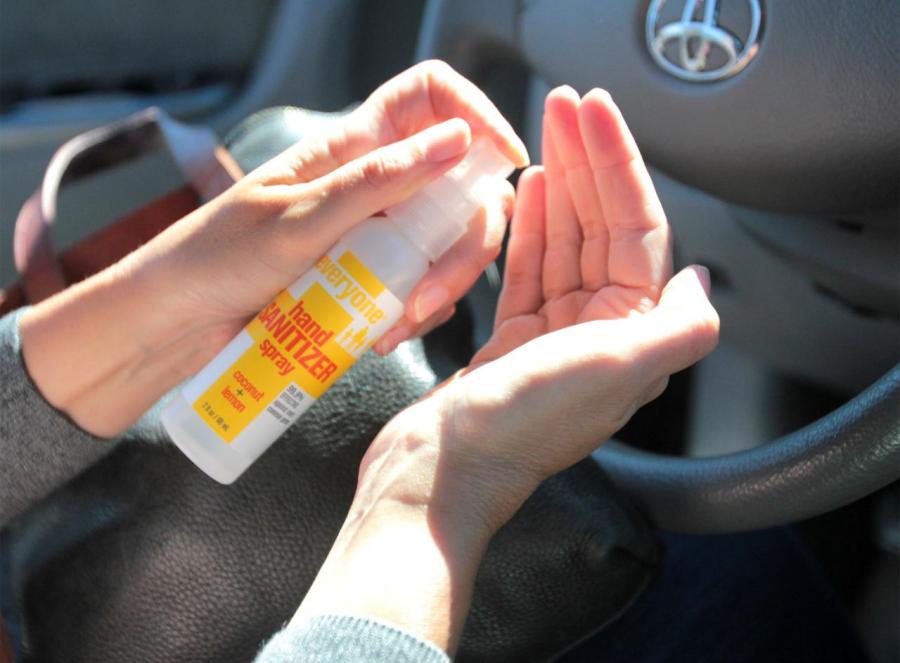
Wash your hands before eating and after touching unfamiliar surfaces, especially metal. Each handwashing session should last at least 10 seconds to allow the disinfectant to effectively do its job. Additionally, carrying a bottle of hand sanitizer or dry hand wash is a convenient option for travel.
4. Disinfect surfaces with alcohol.
Cleaning surfaces you'll come into contact with is something you should do when visiting any public place. As mentioned above, Covid-19 spreads through droplets; these tiny droplets quickly fall to the ground or other surfaces after an infected person coughs or sneezes. Therefore, carefully cleaning the surfaces around you is extremely important. This includes everything from dining tables and chair armrests to restroom door latches and even entertainment screens and remote controls on airplanes.
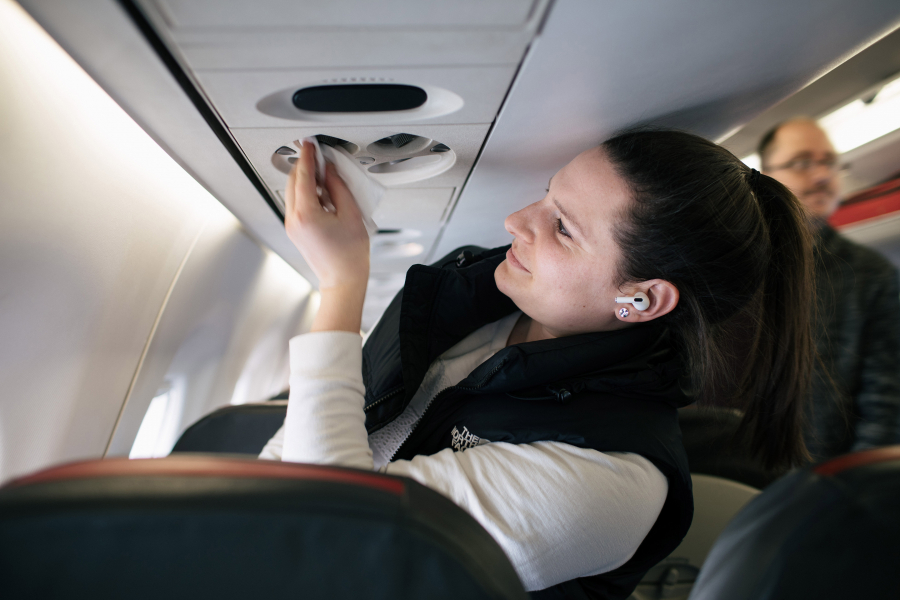
Healthcare professionals recommend using alcohol wipes or antibacterial gels for effective disinfection. The higher the concentration, the better the ability to kill viruses or bacteria.
5. Arrive early if traveling by plane.
Don't hesitate to arrive 2 to 3 hours early for each flight, as this will greatly benefit you when traveling during the pandemic! The first advantage of arriving early is that you can check in as soon as the airline opens the counter, helping you avoid the crowds and rush at the check-in counter.
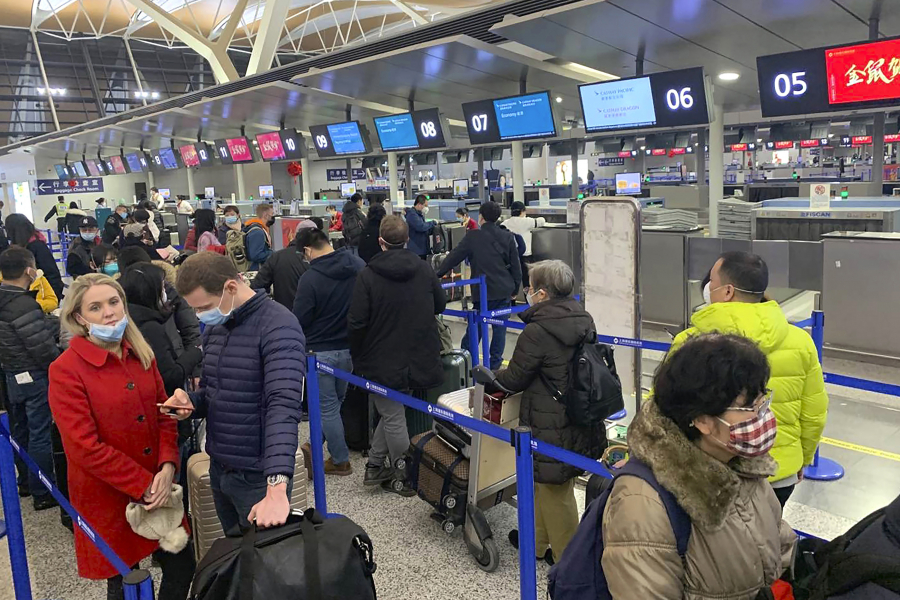
The second benefit is that you have the right to choose your preferred seat before others. A window seat is ideal, as it helps you avoid more risks than sitting in the middle or next to the aisle. A good seat helps you avoid active or passive contact with too many people: flight attendants walking around, asking for help getting in and out of seats, asking to change seats, close proximity to others, etc. By limiting contact with many people in close proximity, you can limit your exposure to many harmful bacteria and viruses.
6. Limit movement and seat changes on the plane.
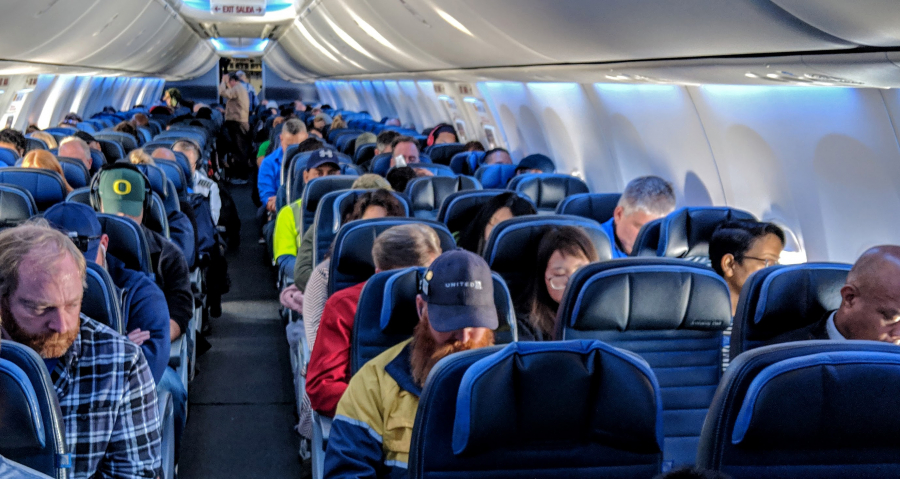
This is probably not new information; limiting movement will minimize risk because the number of people you come into contact with always multiplies exponentially and grows very quickly, making it difficult to control in public places like airports or airplanes. Similarly, not changing seats on an airplane will also help you minimize the chance of coming into contact with many strangers in a confined space.
7. Turn on the air conditioner to recirculate air if traveling by private car.
An important rule everyone should remember when traveling by car during a pandemic is to use the recirculating air conditioning system. Typically, car air conditioning systems have two modes: recirculating and circulating air. Using the recirculating mode helps limit the entry of coronavirus from the outside air. According to scientists, using the recirculating mode while the air conditioner is on can also help keep the air inside the car safer when passing through areas with virus infections or unhealthy air quality.
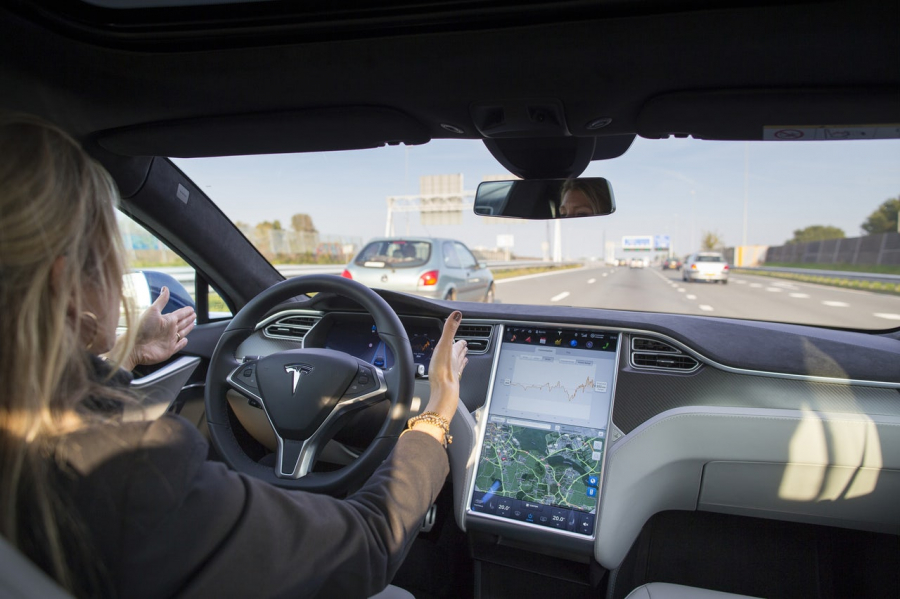
8. Boost immunity
The immune system plays a crucial role in fighting off external pathogens. Good resistance and a strong immune system will greatly assist the body in the battle against Covid-19.
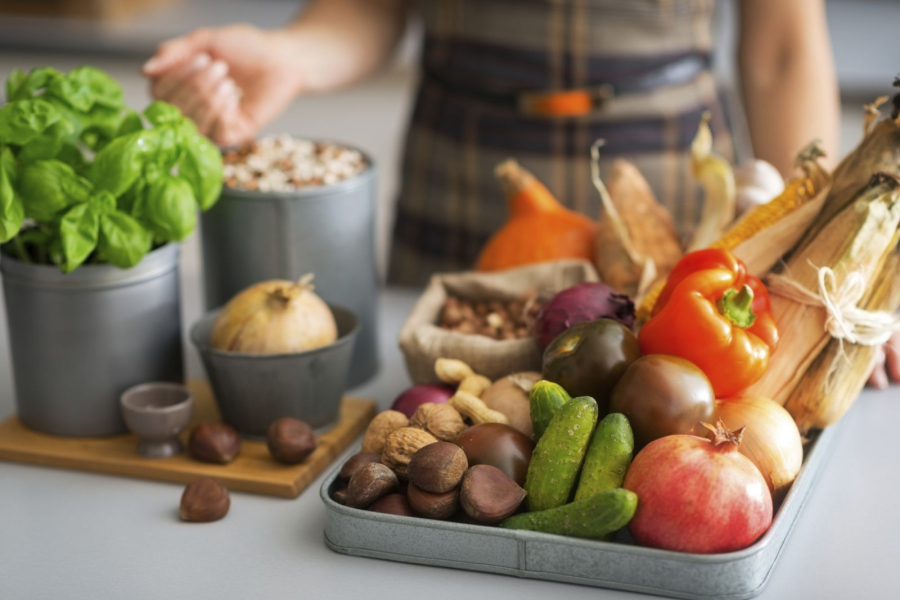
“To boost immunity, people need to supplement with sufficient vitamins D, A, and C,” said Dr. Le Quoc Hung, Head of the Tropical Diseases Department at Cho Ray Hospital. Accordingly, vitamin A can be supplemented by taking vitamin A supplements regularly or eating more carrots and pumpkins; vitamin C is abundant in vegetables and fruits, especially guava, oranges, and kiwi; and vitamin D can be supplemented through sun exposure or from medication as needed. In addition, everyone should maintain a healthy and balanced diet and sleep schedule and drink enough water.
Additionally, you can refer to the video on 7 steps to prevent the spread of Covid-19, produced by the Ministry of Health in collaboration with the World Health Organization (WHO) in Vietnam:

 VI
VI EN
EN
























